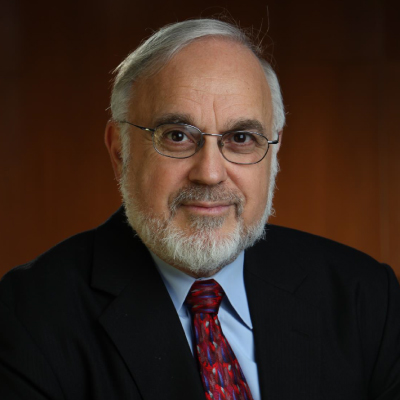What Happens in Malmo Never Stays in Malmo
Amid rising antisemitic incidents, Sweden hosts Eurovision in Malmö, raising security fears for the small local Jewish community. Israel's Eden Golan faces mixed reactions at her performance, highlighting tensions
I have spent the week of Yom Hashoah in Germany and Austria, listening to Berlin’s Jewish members—under the watchful eyes of police outside the community’s headquarters, reading each of the 56,000+ names of Berlin’s Jews murdered by the Nazis and attending the formal Yom Hashoah led by Austria’s chancellor. There were also somber briefings by intelligence officials struggling with a myriad of threats from multiple terrorist groups, discussions with chief diplomats about the Gaza war, and flickering hopes of a revitalized Abraham Accords, the “day after.”
As the pro-Hamas campus invasions from Columbia to UCLA back home began to recede, as if on cue, they began to play out Europe—from Amsterdam to Vienna.
And with triple-digit increases in antisemitic incidents pouring in in the US, you may have missed the just-released Swedish National Council for Crime Prevention report that details over 100 antisemitic hate crimes between October 7 and the end of 2023, almost five times the number in 2022.
It’s troubling for sure, but why should we focus on Sweden?
Two words: Eurovision and Malmö.
Eden Golan’s appearance on behalf of Israel in the jury rehearsal of the second semi-final, currently underway at the Malmö Arena, was marked by disapproval but also by applause.
Golan performed her entry “Hurricane” for the first time in front of the audience! Some in the stands strongly disapproved of Israel’s participation, chanting Free Palestine. The police present inside the Malmö Arena immediately intervened and restrained these people. But apart from disapproval, there was also a lot of applause for Eden and her flawless appearance.
In the recap afterward, there was no shot of Eden Golan in the green room. She probably left for security reasons.
This holiday season, give to:
Truth and understanding
The Media Line's intrepid correspondents are in Israel, Gaza, Lebanon, Syria and Pakistan providing first-person reporting.
They all said they cover it.
We see it.
We report with just one agenda: the truth.


Malmo’s small Jewish community has been deeply worried that the burgeoning anti-Israel/pro-Hamas protests could directly impact them.
Already in November, pro-Hamas demonstrators burned an Israeli flag outside the city’s only synagogue. The Jerusalem Post reports that Jewish residents are already on edge as they see antisemitic and anti-Israel decals everywhere.
The issue of antisemitism is something that I and every Jew or Israeli living in the area are aware of. When we go out onto the street … you can see a store window in Malmö that says Israel is committing war crimes, and it’s awful.
“The issue of antisemitism is something that I and every Jew or Israeli living in the area are aware of,” said one Jewish resident. “When we go out onto the street … you can see a store window in Malmö that says Israel is committing war crimes, and it’s awful.”
“There is absolute demonization, and it’s horrible. None of us can walk on the street with Jewish symbols, except for the local rabbis. I won’t hang an Israeli flag on my balcony on Independence Day because I’m sure it would only take a day before someone hits me with a stone thrown through my window.”
Some Jews have even removed the mezuzahs from their outer doorposts. Speaking Hebrew in public is out of the question and almost no one is seen wearing a kippah in public.
The security concerns in Malmö ahead of Eurovision are so serious that Israel has announced a travel advisory, and there is even an app to alert Israelis if trouble breaks out.
Overreaction? Hardly.
In fact, this isn’t the first time that Malmö has been under a travel advisory. Back in 2010, I traveled to Malmö with my colleague Dr. Shimon Samuels after the community’s rabbi confirmed to us that he alone had been subject to antisemitic taunting and harassment hundreds of times and that authorities failed to act. After meeting with the city’s mayor, chief prosecutor, and head of law enforcement, it became clear that Sweden’s third-largest city was unwilling to protect its Jewish citizens and that the people in positions of responsibility weren’t motivated to change the status quo.
As a result, the Simon Wiesenthal Center (SWC) slapped a travel advisory on Malmö some 14 years ago. I announced that the ban would be removed on the day of the first prosecution and conviction of an antisemitic act. The sun has yet to rise on that day in the city of Malmö.
Sweden’s new national government has made new efforts to combat antisemitism. However, given the radicalization of a large segment of the local population—a process supercharged by post-October 7 pro-Hamas supporters, those measures may not have an impact on this weekend’s protests.
Traditionally, Eurovision has been an annual event during which the power of music supplants political differences for a few days when hope and love displace hate and intolerance. We can all hope for the best. But Sweden isn’t taking any chances. They are flooding Malmö with thousands of police to try to cope with thousands of anti-Israel protests and ensure public safety.
Fourteen years ago, we beseeched authorities to tackle antisemitism. They refused to heed our warning that it often starts with the Jews but never ends with the Jews.
This year’s Eurovision will proceed under the heavy cloud of po-Hamas hatred. We are proud that the talented and courageous Eden Golan will represent her people with grace and dignity. We wish her every success.
But the morning after, SWC’s travel ban will still stand, and the fears of Swedish Jews for their future will continue to grow.
As for Malmö, the city leaders must finally deal with antisemitism and treat their Jewish citizens as equals. Malmö should never be rewarded for any future international marque event if they don’t.


